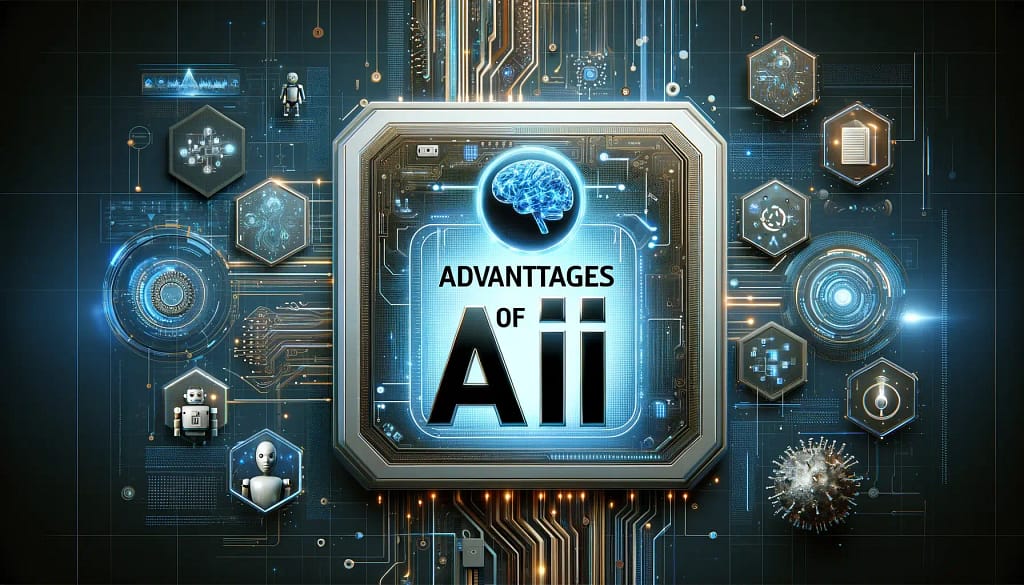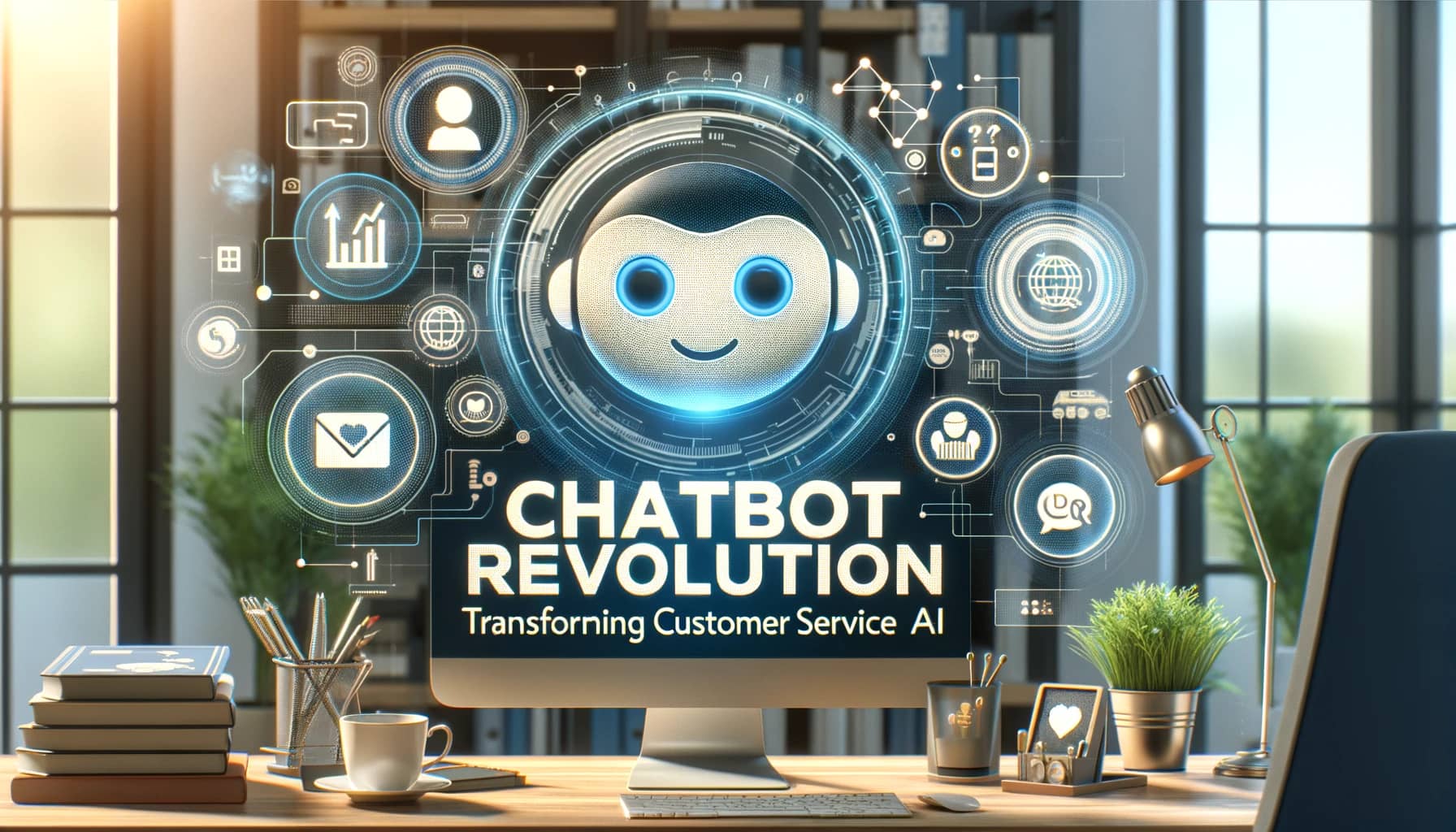Artificial intelligence (AI) is revolutionizing the way humans live and work in everyday life, reducing human error. From healthcare to finance, artificial intelligence’s advantages are transforming industries at lightning speed, solving problems for people and humans alike. Imagine a world where artificial intelligence and machines handle mundane tasks, freeing up time for humans’ creativity and innovation advantages. Yet, some people fear this rapid change driven by artificial intelligence could lead to job losses and ethical dilemmas despite its advantages. Understanding AI’s benefits helps us navigate these challenges wisely. Dive in to explore how artificial intelligence helps humans enhance efficiency, decision-making, and quality of life.
Artificial Intelligence Advantages: Key Takeaways
- Leverage AI for Efficiency: Artificial intelligence can automate repetitive tasks, saving time and reducing human error, which helps boost overall productivity for humans.
- Enhance Decision-Making: AI algorithms analyze large datasets quickly, providing insights that help humans in making informed decisions with artificial intelligence.
- Improve Customer Experience: Implement artificial intelligence tools like chatbots to help offer instant support and personalized recommendations, enhancing customer satisfaction for humans.
- Address Challenges Proactively: Be aware of potential challenges such as data privacy and bias in artificial intelligence, and develop strategies to mitigate these issues for humans.
- Select the Right AI Solutions: Choose artificial intelligence technologies that align with your specific business needs and goals for maximum impact.
- Stay Updated: Keep abreast of the latest artificial intelligence advancements to continuously improve and innovate within your organization.
Understanding AI: Harnessing the Artificial Intelligence Advantages

Basics of AI
AI stands for artificial intelligence. It involves machines performing tasks that usually require human intelligence. These tasks include learning, reasoning, and problem-solving. One of the key artificial intelligence advantages is its ability to process vast amounts of data quickly and accurately.
AI systems use algorithms to process data. They learn from this data to make decisions or predictions using artificial intelligence. This is another one of the artificial intelligence advantages, as it allows machines to continuously improve their performance over time. There are two main types of artificial intelligence: narrow AI and general AI.
Narrow AI, also known as weak AI, is designed to perform specific tasks, such as image recognition or language translation. This is one of the artificial intelligence advantages that is currently being utilized in various industries. On the other hand, general AI, also known as strong AI, aims to create machines that can think and reason like humans, which is a potential future artificial intelligence advantage.
AI in Business
AI is transforming businesses today. Companies use artificial intelligence to analyze large amounts of data quickly. This helps them make better decisions.
For example, retailers use AI to predict customer behavior. This allows them to use artificial intelligence to stock the right products and reduce waste. Banks use AI intelligence for fraud detection by analyzing transaction patterns.
AI Innovations
There have been many innovations in AI recently. Autonomous vehicles are one of the most exciting areas. These cars can drive themselves using sensors and cameras. This is a significant artificial intelligence advantage as it can potentially reduce accidents caused by human error and improve traffic efficiency.
Another innovation is in healthcare. AI helps doctors diagnose diseases faster and more accurately. For instance, it can use intelligence to analyze medical images to detect early signs of cancer. This is another crucial artificial intelligence advantage that can lead to better patient outcomes and reduced healthcare costs.
Moreover, AI algorithms can process vast amounts of medical data and identify patterns that may be difficult for humans to spot. This artificial intelligence advantage can help researchers develop new treatments and medications more quickly. Additionally, AI-powered chatbots and virtual assistants can provide patients with 24/7 support and guidance, which is another artificial intelligence advantage that can improve patient care and satisfaction.
Advantages of AI

Error Reduction
AI systems can significantly reduce errors. Machines follow exact instructions. This leads to fewer mistakes compared to humans. For example, in manufacturing, robots assemble products with high precision. This ensures higher quality and consistency.
Risk Management
AI helps manage risks effectively. It predicts potential issues before they occur. This is one of the significant artificial intelligence advantages that can help businesses and organizations stay ahead of potential problems. Financial institutions use AI to detect fraud. By analyzing transaction patterns, it identifies suspicious activities quickly. This artificial intelligence advantage prevents financial losses and enhances security.
Moreover, AI algorithms can process vast amounts of data from various sources, including social media and news outlets. This artificial intelligence advantage allows businesses to monitor and analyze market trends, customer sentiment, and competitor activities in real-time. By leveraging this information, companies can make informed decisions and adapt to changing market conditions quickly.
Another artificial intelligence advantage is its ability to automate risk assessment processes. AI algorithms can evaluate credit worthiness, insurance claims, and investment opportunities more accurately and efficiently than humans. This not only saves time and resources but also reduces the risk of human bias and errors in decision-making.
Availability
AI operates continuously without breaks. Unlike humans, machines do not need rest. This is one of the key artificial intelligence advantages that enables businesses to provide uninterrupted services. Customer service chatbots are available 24/7. They answer queries instantly, improving customer satisfaction. This constant availability is a significant artificial intelligence advantage that boosts productivity across various sectors.
Moreover, AI-powered systems can handle multiple tasks simultaneously without getting tired or losing focus. This artificial intelligence advantage allows businesses to process large volumes of data and transactions more efficiently. For example, AI algorithms can analyze thousands of financial transactions in real-time to detect fraudulent activities, which is an artificial intelligence advantage that helps prevent financial losses.
Another artificial intelligence advantage is its ability to provide personalized recommendations and experiences to customers. By analyzing customer data and behavior, AI algorithms can identify individual preferences and tailor product suggestions, content, and advertisements accordingly. This level of personalization is an artificial intelligence advantage that can lead to higher customer engagement, loyalty, and sales.
Digital Assistance
Digital assistants like Siri and Alexa simplify daily tasks. They perform actions based on voice commands. These assistants set reminders, play music, or control smart home devices. By handling routine tasks, they save time and effort for users.
Innovation and Creativity
AI fosters innovation and creativity in many fields. Artists use AI to create unique pieces of art. Scientists employ AI for complex research and data analysis. In healthcare, AI develops new treatment methods by examining vast amounts of medical data.
AI in Action: Showcasing the Artificial Intelligence Advantages
Daily Use Cases
AI impacts our daily lives in many ways. Virtual assistants like Siri and Alexa help manage tasks. They set reminders, answer questions, and control smart home devices.
Recommendation systems on platforms like Netflix and YouTube suggest content based on user preferences. This enhances the viewing experience by tailoring suggestions to individual tastes.
High-Risk Applications
AI is crucial in high-risk industries. In aviation, autopilot systems use AI to assist pilots during flights. These systems improve safety and efficiency by handling routine tasks.
In finance, AI detects fraudulent activities. It analyzes transaction patterns to identify unusual behavior. This helps prevent fraud and protects users’ financial information.
Medical Breakthroughs
AI revolutionizes healthcare with significant advancements. It assists in diagnosing diseases more accurately. For example, AI algorithms analyze medical images to detect early signs of conditions like cancer.
Robotic surgeries are another breakthrough. Surgeons use AI-powered robots for precision during operations. This reduces recovery time for patients and minimizes risks during surgery.
Overcoming Challenges
Addressing High Costs
AI systems can be expensive to develop and maintain. Initial setup costs are high. Companies need skilled professionals to design and implement these systems. Maintenance also requires ongoing investment. Despite this, many businesses find the long-term benefits outweigh the costs. AI can automate repetitive tasks, saving time and money.
Balancing Human Interaction
AI often replaces human roles in customer service and other areas. This can lead to a loss of personal touch. People value human interaction for its empathy and understanding. To balance this, companies use AI to handle basic tasks while keeping humans for complex issues. For example, chatbots answer simple queries, but humans manage more intricate problems.
Ethical Considerations
Using AI raises ethical questions. One concern is data privacy. AI systems collect vast amounts of data, which must be protected from misuse. Another issue is bias in AI algorithms. These biases can lead to unfair treatment of certain groups. Companies must ensure their AI systems are transparent and fair.
Choosing the Right AI Path
Professional Development
AI offers many opportunities for professional growth. Individuals can learn new skills and enhance their careers. Many industries seek AI experts, creating a high demand for training programs.
AI courses are available online and in universities. These courses cover machine learning, data analysis, and programming. Learning these skills can lead to better job prospects.
AI certifications also boost career advancement. Organizations like Coursera and edX offer recognized certificates. Professionals with these credentials often earn higher salaries.
Industry Applications
AI is transforming various industries. It improves efficiency and decision-making processes.
In healthcare, AI assists in diagnosing diseases. It analyzes patient data quickly and accurately. This leads to faster treatments and better outcomes.
In finance, AI detects fraudulent activities. Banks use algorithms to monitor transactions in real-time. This helps prevent fraud and ensures financial security.
Retail businesses benefit from AI as well. It enhances customer experiences through personalized recommendations. Companies like Amazon use AI to suggest products based on user behavior.
By choosing the right AI path, professionals can thrive in their careers while industries continue to innovate and grow.
Final Remarks
You’ve seen firsthand how artificial intelligence can revolutionize industries and streamline daily tasks. From enhancing productivity to solving complex problems, AI offers immense benefits that are hard to ignore. By understanding its potential and overcoming challenges, you’re well on your way to harnessing the power of AI for your needs.
Now it’s your turn to dive deeper. Explore, experiment, and find the right AI path for you. The future is bright, and with AI on your side, the possibilities are endless. Ready to take the next step? Embrace AI today and transform your tomorrow.
Frequently Asked Questions
What is artificial intelligence (AI)?
AI refers to computer systems that mimic human intelligence. They can perform tasks like learning, problem-solving, and decision-making.
What are the main advantages of AI?
AI improves efficiency, reduces errors, and handles repetitive tasks. It also enhances data analysis and customer service.
How is AI used in everyday life?
AI powers virtual assistants like Siri and Alexa. It’s used in recommendation systems on Netflix and Amazon and in autonomous vehicles.
What challenges does AI face?
AI faces ethical concerns, data privacy issues, and high development costs. There’s also a need for skilled professionals.
How can businesses choose the right AI path?
Businesses should assess their needs, budget, and goals. Consulting with AI experts helps in making informed decisions.
Is AI safe to use?
Yes, when developed responsibly with proper safeguards. Ethical guidelines ensure AI’s safe deployment.
Can small businesses benefit from AI?
Absolutely! Small businesses can automate tasks, improve customer interactions, and gain insights from data using affordable AI solutions.






